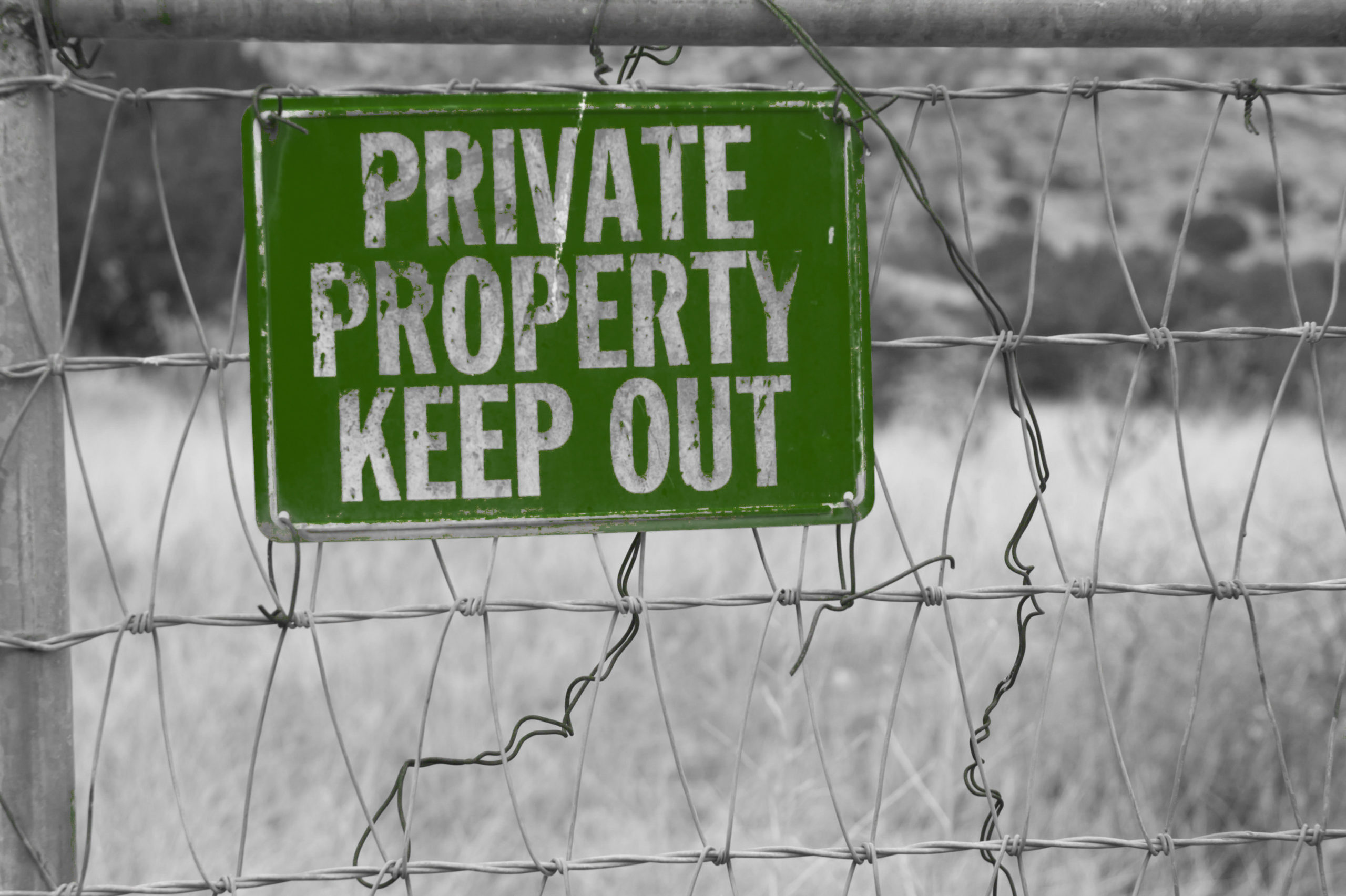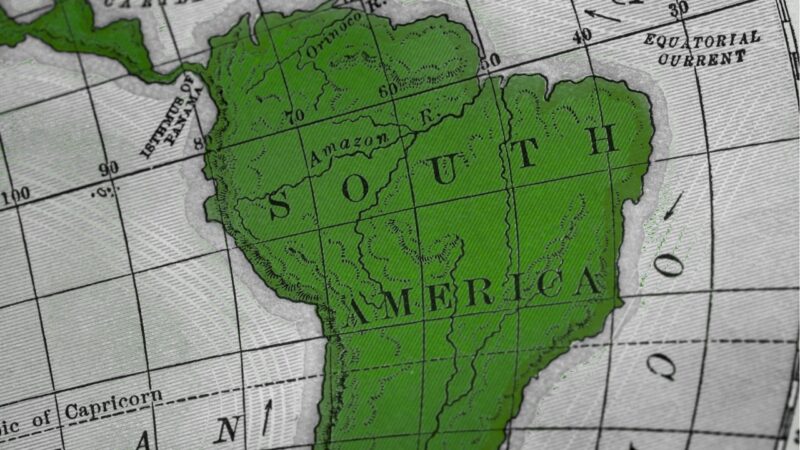Property rights in Ukraine: Crucial for postwar reconstruction

Introduction
While the Russo-Ukrainian war still rages in Ukraine, with Russia pressing tactical advantages in the Donbas (following its humiliation in the battles for Kyiv and Kharkiv), policymakers have begun to look ahead to what a postwar Ukraine might look like. Of course, much of this planning may be premature, as the precise path that Ukraine takes after the end of the war will largely be determined by the extent of Russia’s defeat. However, there is widespread recognition that the Ukrainian state needs even more urgently to pursue its path of reforms that was started at Euromaidan in 2014, in order to become less like Russia and more like a successful market economy.
The issues that Ukraine faced in 2014 were legion—a legacy of two decades of stop-start transition and an insufficient commitment to removing the state from economic activities. Especially under the corrupt reign of President Viktor Yanukovych, the state became a conduit for transferring money from ordinary Ukrainians, via taxation, to oligarchs and political insiders. Institutional malaise, including an inordinate focus on political institutions at the expense of economic ones, made the Ukrainian economy both highly susceptible to shocks and heavily dependent on Russia.
The abrupt move away from Russia and toward the European Union in 2014 began to change this state of affairs; Ukraine’s desire to integrate more fully with the West spurred massive reforms in energy, regional governance, and the police. Still, facing the occupation of parts of its territory in the east and with anti-reform forces regrouping and pushing back, not all of the changes deemed necessary were instituted in Ukraine. Paramount among the reforms which moved too slowly was more effective protection of property rights. In order for Ukraine to become the resilient market economy it desires to be in the postwar world, it needs to urgently rectify this oversight and focus resolutely on this key area of economic institution building.
Property rights in economic growth
The economic literature is clear and unequivocal on the importance of property rights for growth. Often thought of as pertaining exclusively to land ownership, property rights are more properly thought of as excluding a particular good from general use. Via this exclusion, upon owners of goods are conferred the right to transfer, manage, retain, or dispose of this property as they see fit without external interference. While this can be extended to land ownership—with the most powerful symbol of private property likely being the barbed-wire fence warning others to “keep out”—literally any item or good (including one’s own body) can be thought of as “property” and thus subjected to the same rights.
Moreover, property rights exist not only in the formal sense, i.e., as a series of laws and regulations related to formal ownership of goods (for an analogue with land, this often refers to title, registration, cadaster, and other formalities to prove ownership). Property rights may also exist in an informal realm—in the sense of ancestral or tribal rights, for instance—and they need not be exercised individually. As an example of the latter, Nobel laureate Elinor Ostrom spent decades cataloguing various types of property rights and how they differed across human cultures. These informal rights are often a substitute for formal rights when they are missing, but when formal rights become well developed, they can co-exist alongside individual rights, further defining the limits to formal property ownership. However, in very few cases are informal rights a perfect substitute for formal rights—especially in the case of collective ownership: if no individual rights exist, the ambiguous nature of “collective” rights makes them easily overturned or usurped.
To further complicate matters, a major problem in sustaining property rights generally is that to function effectively they rely heavily on supporting institutions. One of the most difficult issues in understanding property rights and their functioning is that we often only observe them in the breach, rather than in the practice; that is, we understand when property rights have been violated (incl. expropriation, trespass, or seizure) but it is more difficult to see them when they are working. To employ a metaphor, they act as an invisible force field which is only recognized when it is bumped into. Thus, it is only when property rights are threatened that the field is pushed against, then we see just how strong those rights are. And indeed, it is only supporting institutions that determine the strength of this “force field,” as the boundaries of the field can be set in legislation but without a way to keep it in place, there will be no guard against infringements. In practice, this means the creation of an effective judiciary and other contractual institutions (incl. the financial sector) that can help to enforce the rights that are laid down in legislation and foundational documents such as constitutions. If a country has enshrined property rights in its legislation but done nothing to develop these supporting institutions, these rights could be vitiated or even ignored in practice.
Of course, those interested in building property rights should not be discouraged, as crossover work done in political science and economics has identified just how property rights can be protected and how these supporting institutions can themselves be supported. Another Nobel laureate, Douglass North, made a career out of exploring institutions and institutional change, and in several important papers he noted that property rights can be sustained and functional if there is a true balance and diffusion of power throughout a political system. In other words, power should be dispersed among many players with many veto points, as the diffusion of power prevents any one actor from having the ability to seize another’s property. At the same time, the reality that anyone can become powerful (in the sense of entering government) gives each actor an incentive to enshrine and protect property rights against other, equally situated actors. In this sense, political systems that encourage centralization, powerful executives, and high levels of government intervention are the most likely to see little protection of property rights.
Ukraine’s historically inadequate relationship with property rights
Throughout its history Ukraine has unfortunately followed this latter path. The country today known as Ukraine was never inclined to cultivate any diffusion of political power, and the history of the Ukrainian state from the 12th century onward is one of continuous centralization of power in the hands of the executive (whether Ukrainian or foreign), leading to a lack of political competition. When they were allowed, broad-based property rights in Ukraine were never seen as more desirable than the alternative—namely, narrowly prescribed rights, accruing to the elites via the apparatus of government. Under the oppressive yoke of the Russian Tsar, this practice became even more pronounced: reforms in 1786 blocked off large swathes of Ukrainian estates from ever being disposed of, while the Russian imperial rulers emphasized the idea of “communal property rights,” where land was allotted to communities rather than households, blocking the development of individual rights. In Soviet times, with property rights officially eschewed and under constant assault, crimes such as the Holodomor were easier to perpetrate by a centralized, monopolistic government based in Moscow.
Even after Ukraine obtained its independence, it refused to move towards a full-fledged defense of property rights. In the early years of transition (1991–94), the Verkhovna Rada was dominated by Communist Party loyalists who blocked any legislation that could have opened up markets in Ukraine to the extent that was being done in neighbouring Poland. Indeed, with the concentration of powers in a single institution, Ukraine continued to block broader-based property rights reforms, and the Communist-dominated Rada drafted legislation that lay out a framework for privatizing land but did not depart dramatically from the Soviet or Russian model (particularly in its focus on Tsarist- and Bolshevik-era “communal rights”). In fact, early drafts of the 1992 Constitution noted that “exercising the right of ownership must not contradict the interests of society as a whole or of individual natural persons or legal entities,” while additional drafts in 1993 not only retained these provisions but also envisioned additional administrative mechanisms that were consistent with limited property rights.
The key manifestation of these limits came in the Land Code passed in 2001. Envisioned as a “temporary solution,” for two decades Ukrainian politicians clung to an agricultural land sale moratorium, refusing the sale of agricultural land on the basis of an “underdeveloped land market.” Of course, the irony was that the moratorium prevented the development of a land market and thus created a Mobius strip of justification against property rights. Indeed, the effect of this moratorium was to lock up productive land and deny citizens their basic right to dispose of their property as they saw fit. All the while, politicians had no problem in accessing different kinds of land for their own uses, and workarounds (such as multi-decade leases) only appeared to kick the problem down the road.
De-centralization and Property Rights Go Hand in Hand
Throughout Ukraine’s history the disdain for property rights held by the political elites has kept the authority centralized in Kyiv but created other problems. In particular, the lack of veto power and weak property rights meant a proliferation of opportunities for corruption, all of which contributed to retarding the growth of key supporting institutions. Let us consider the right to trade across borders, a right which is expanded throughout Europe but was not assured in Ukraine before the Euromaidan. At various times in independent Ukraine’s history, the Ukrainian government has imposed export quota and licensing requirements as well as a number of other restrictions; such mechanisms increase the frequency of interactions between the private and the public sector, transferring decision-making from the market to politicians. Under such conditions the opportunities for corruption grow exponentially and only lead to more distortionary economic outcomes (which then, naturally, necessitate more intervention). All of this is caused by the lack of property rights and by government veto power.
Since the Euromaidan, the situation in Ukraine has changed for the better, mainly because of concerted efforts at decentralization reforms that would move some power out of Kyiv and to the regions. In this manner, a number of veto points were introduced into the system as a check against corrupt practices emanating from the center. Other reforms related to supporting democratic institutions such as the police have also been undertaken, but none has been as important as the shift toward decentralization. At the same time, the longstanding moratorium on agricultural land sales was finally lifted in 2020, and tentative steps have been taken since then toward a functioning land market; this was a major accomplishment of President Volodymyr Zelensky before the escalated Russian invasion in February 2022. The repeal was not completed, and foreigners are still barred from owning land, but it is at least a step in the right direction for a country which has been heading in the wrong direction for too long.
Unfortunately, one of the biggest stumbling blocks to property rights development remains, and that is the judicial system. Reform of the judiciary has stalled since the initial flurry of work immediately following the Euromaidan, and entrenched interests have shown no inclination to relinquish their power. Like property rights, judicial independence is not a well-established idea in Ukraine, again harkening back to Tsarist intentions to exclude Ukrainians from the formal judicial system. Under President Zelensky there has been a lack of will to seriously reform the judiciary, with a focus on prosecuting high-profile politicians rather than reforming the institution itself.
Ironically, the Ukrainian judicial system’s role in interfering with the exercise of property rights could be minimized if there were still not so many opportunities for the state to intervene in the economy. Indeed, while corruption in Ukraine is no longer at the gargantuan scale it was at under Yanukovych, it has not been eradicated mainly due to the fact that the state apparatus is still too large and involved in everyday Ukrainian life. Prior to the Russo-Ukrainian war it was still too difficult to start a business, to pay taxes, or to comply with the myriad rules and regulations laid out by the government—therefore, the judiciary was needed to adjudicate disputes between citizens and rulers. While progress has been made in eliminating the red tape necessary to operate in Ukraine, as of 23 February 2022 there were still too many opportunities for the state to oversee—and be involved in—the activities of private businesses.
Conclusion
For Ukraine to continue its transition and reach a successful outcome in a postwar world, the country will need to accelerate its reform path, particularly in the area of property rights. There are concrete reforms that can be put in place; first and foremost should be continuing decentralization and giving much more power to the regions. If anything, the escalated invasion launched in February has shown just how powerful decentralization can be: rather than relying on a Soviet hierarchical approach like Russia, the decentralized and flexible tactics of the Ukrainian army have allowed it to prevail in Kyiv and Kharkiv. This same flexible, polycentric approach needs to be retained in normal political life—with the more veto points, the better. As noted above, decentralization and property rights protection go hand in hand, and the successful decentralization reforms implemented by Ukraine thus far should be built upon substantially.
At the same time, more specific changes are required, including removing restrictions on agricultural land sales in order to liberalize the market even further. Moreover, judicial reform needs to be accelerated along the lines of Estonia’s reform in the 1990s where all judges were relieved of their duties en masse and required to re-apply. The creation of an Ethics Council to approve members of the High Council of Justice based on standards of integrity would also be helpful, as would be completing the creation of the Special Anti-Corruption Prosecution Office. Much more fundamentally, however, the influence of the judiciary needs to be minimized by simply lessening the role of the state in the economy. By moving towards a concerted effort at deregulation, removing large portions of the civil and commercial codes that do nothing but enrich politicians, there will be less need for the judiciary. Simultaneously, reducing the power of the state will unleash the entrepreneurial power of Ukrainians—a power which has been amply demonstrated in the resistance against the Russian invasion.
This brings us to one final important point. The relationship of Ukrainians to property and their land has been moulded and shaped by Russian influence going back to the 17th century, often imposed from above by Russian rulers and then adopted by those who would benefit. Once Russia has been evicted from Ukraine, its anachronistic ideas regarding property and the role of the state need to be evicted as well.

